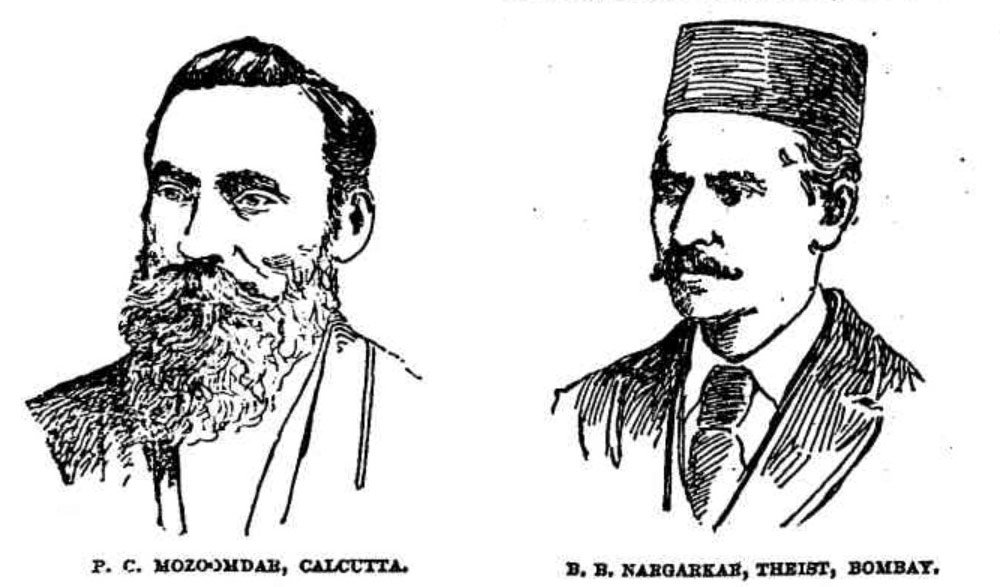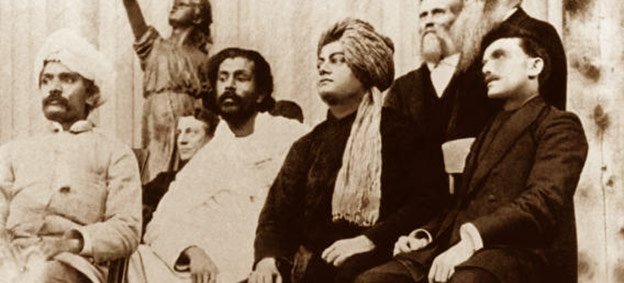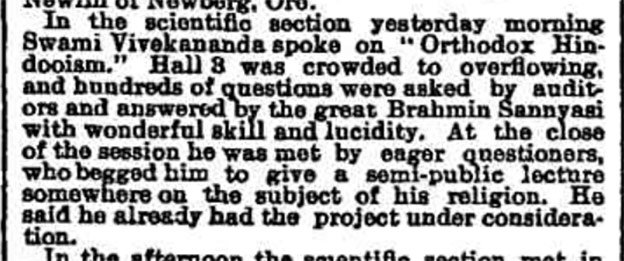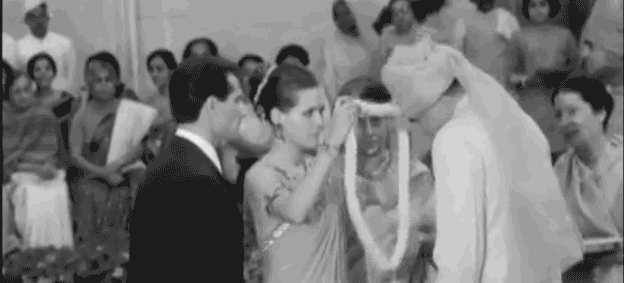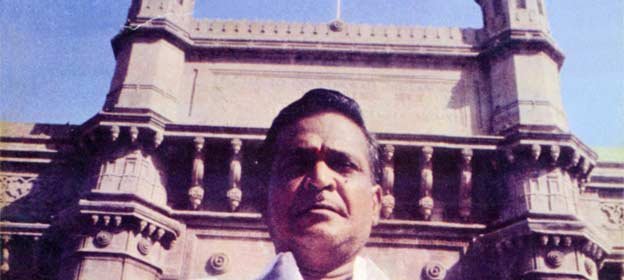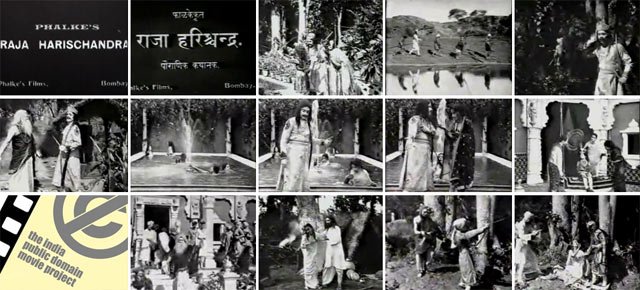Also a list of the other participants from India at the 1893 Parliament of World’s Religions at Chicago. There were at least 15, including Vivekananda.
Swami Vivekananda’s famous address at the 1893 Parliament of World’s Religions at Chicago was back in the news again with Prime Minister Narendra Modi taking the opportunity of the 124th anniversary (not 125th as it has been widely reported) of the speech on September 11, 2017, to address students around the country.
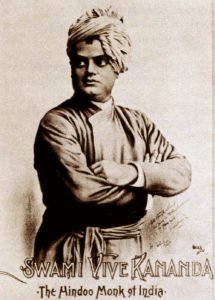
Now on the point of this particular post.
We all have grown up reading that Swami Vivekananda began his Chicago address with the salutation “Sisters and brothers of America,” followed by a long applause.
But then a few days ago, Pathikrit Sanyal, in a comment to a Facebook post, bought to my notice this January 2015 post in the DailyO that claims that “Vivekananda never said, ‘Sisters and brothers of America'” and attempts to bust the “myth”.
The post also chides the then US President Barack Obama for repeating the “myth” during his January 27, 2005 address at New Delhi’s Siri Fort.
The author’s conclusion is based on his/her reading of an 1893 book A Chorus of Faith that recounts the speeches at the Parliament of Religions. Because the book doesn’t make any mention of “Sisters and brothers of America,” the author arrives at the conclusion that it was a falsehood and wonders, “who first started this myth that Vivekananda said those lines.”

As I had been reading and posting about the famous speech as the Prime Minister was talking on live television, this got me redirecting my research a little.
The book A Chorus of Faith, mentioned in the DailyO article, is based on the reports published in The Chicago Daily Tribune and I was digging out relevant portions from the Tribune‘s archives for a a different (but related) purpose.
It occurred to me that the Tribune in its reporting of the addresses at the Parliament of Religions generally didn’t usually include salutations at the start of the addresses (though they did emphasise on the applause). And therefore this omission of “Sisters and brothers of America” doesn’t mean that Vivekananda didn’t start that way.

I then went back to my original post debunking the audio recording of the speech and found that MS Nanjundiah in his research on Swami Vivekananda’s voice recording had referred to a letter from Vivekananda to Alasinga Perumal.
A quick search led me to the letter and the answer to the question about “who first started this myth that Vivekananda said those lines.”
It was Vivekananda himself. And therefore, we have a first-hand source here.
“I addressed the assembly as ‘Sisters and Brothers of America’, a deafening applause of two minutes followed, and then I proceeded…” Vivekananda wrote in that letter from Chicago dated November 2, 1893.
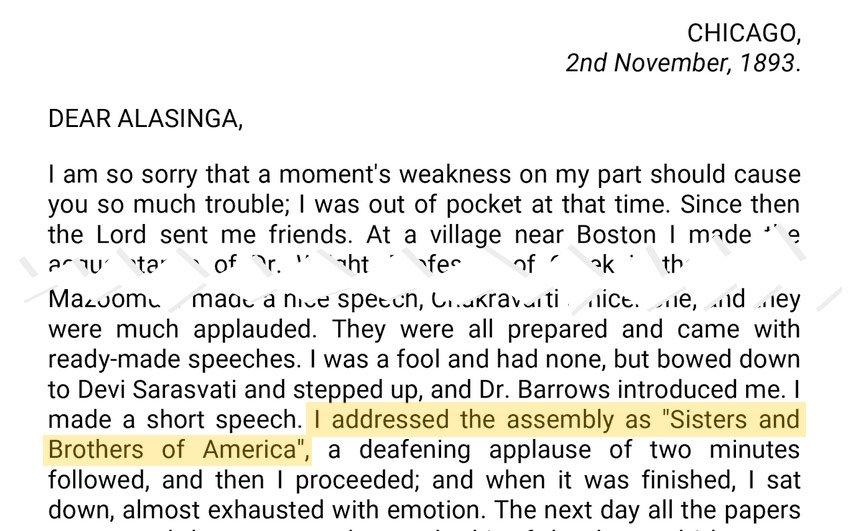
The DailyO post, goes through the introduction of A Chorus of Faith to find no mention of Vivekanda. “The reader will notice that no mention of Vivekananda has been made, though in India it is believed that he made such great an impact,” it observes.
However, reports in The Chicago Tribune suggest that he did make some impact. Vivekananda’s famous speech was punctuated by more than one applause (unlike most of the other speeches reported).
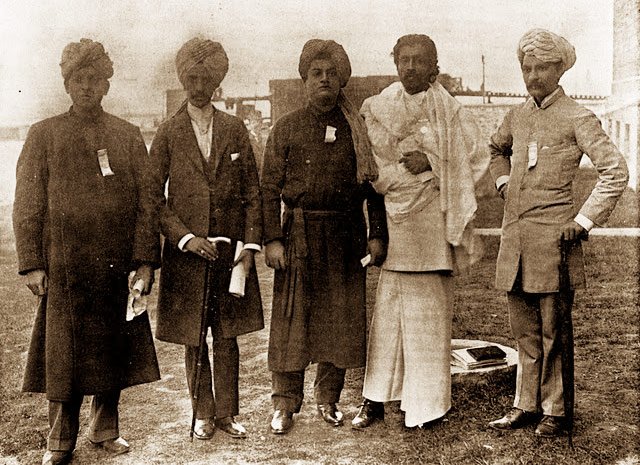
The September 23, 1893 edition of the newspaper described one of Vivekananda’s speeches at the Parliament as such (the report identifies him as a Brahmin):
“In the scientific section yesterday morning Swami Vivekananda spoke on ‘orthodox Hindooism.’ Hall 8 was crowded to overflowing, and hundreds of questions were asked by auditors and answered by the great Brahmin Sannyasi with wonderful skill and lucidity. At the close of the session he was met by eager questioners who begged him to give a semi-public lecture somewhere on the subject of his religion. He said he already had the project under consideration.”
Rajagopal Chattopadhyaya in his book Swami Vivekananda in India: A Corrective Biography does mention that none of the three New York newspapers he looked at – The New York Times, The New York Hearld, and The New York Daily Tribune – reported on Swami Vivekananda at the Parliament of World’s Religions, though some other Indians got appreciative mentions.
Vivekananda’s letter to Alasinga Perumal, though, paints a different picture.
“The next day all the papers announced that my speech was the hit of the day, and I became known to the whole of America. Truly has it been said by the great commentator Shridhara — “मूकं करोति वाचालं — Who maketh the dumb a fluent speaker.” His name be praised! From that day I became a celebrity, and the day I read my paper on Hinduism, the hall was packed as it had never been before. I quote to you from one of the papers: ‘Ladies, ladies, ladies packing every place — filling every corner, they patiently waited and waited while the papers that separated them from Vivekananda were read’, etc. You would be astonished if I sent over to you the newspaper cuttings, but you already know that I am a hater of celebrity. Suffice it to say, that whenever I went on the platform, a deafening applause would be raised for me. Nearly all the papers paid high tributes to me, and even the most bigoted had to admit that “This man with his handsome face and magnetic presence and wonderful oratory is the most prominent figure in the Parliament”, etc., etc. Sufficient for you to know that never before did an Oriental make such an impression on American society.”
Vivekananda, as many would know, wasn’t the only representative from India that the gathering. Though I am not sure of the actual number, I could count 15 from all the reports that I came across. At least nine of them were present on the platform at the opening of the first Parliament of World’s Religions on September 11, 1893.
There were at least 9 Indians, including Swami Vivekananda, at the opening of the Parliament of World’s Religions at Chicago on Sep 11, 1893 pic.twitter.com/fOawFLuEug
— Soumyadip Choudhury (@soumyadip) September 11, 2017
List of delegates from India at the First Parliament of World’s Religions in Chicago
(The names and descriptions may differ from the actual as there are inconsistencies in the reports, for example Swami Vivekananda is also mentioned as Suani Vive Kananda at some places.)
- Nara Sima Chari (Representing the Sri Vaishmara sect and Visistawaiti philosophy)
- Lakshmi Natain/Narain (Representing the Kayastha community)
- Birchand Raghavji Gandhi (Honorary Secretary to the Jain Association of India, Bombay)
- Siddhu Ram (appeal writer, Mooltau, Punjab)
- Swami Vivekananda (a monk of the orthodox Brahminical religion)
- BB Nagarkar (Minister, Brahmo Samaj of Bombay)
- Protap Chunder Mazoomdar (Minister and leader of the Brahmo Samaj of India)
- Jinda Ram (Lawyer, President of the Temperance Society: Vedic, Muzaffargarh)
- Anagarika Dharmapala (General Secretary, Maha Bodhi Society, Calcutta)
- Prof. CN Chakravarti (Allahabad)
- Jeanne Sorabji (A Parsee lady from Bombay)
- Jinanji Jamshedji Modi (Parsee)
- Manilal Dvivedi (Bombay)
- Justice Amir Ali (Calcutta)
- Maurice Phillips (Madras)
